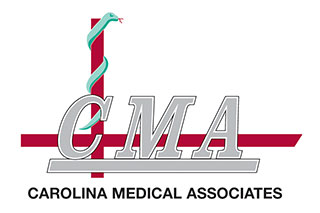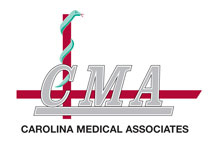What Is Diet?
When people hear the word “diet,” they often immediately think about counting calories, working out, and listing weight loss goals. Although this is certainly one way to interpret diet, the term itself simply describes the collective eating habits of an individual or group of people.
The Basics of Diet
The term diet encompasses all of the foods and liquids that you take in. If you drink soda on a regular basis, soda is a part of your diet. If you consume pie on a weekly basis, pie is a part of your diet. If you eat vegetables each week, vegetables are a part of your diet. “Diet” is a large term to describe virtually everything that you eat and drink on a regular basis. Although it can interact with whether or not you are physically active, physical activity and diet are not necessarily always tied together.
Diet’s Role in Health
Diet plays a significant role in health because the food you take in is an essential part of a healthy lifestyle. Eating a consistently healthy diet means that you are at a decreased risk of chronic disease and illness. If you consistently consume unhealthy foods, you have an increased risk of heart disease and stroke, in addition to high cholesterol, high blood pressure, and diabetes.
Using Diet to Target Specific Needs
Doctors and dietitians are the two most common medical professionals who use dietary recommendations to treat and prevent illness. People with type 2 diabetes, for instance, are typically given strict dietary recommendations to maintain blood sugar levels and support health. People who develop heart disease may be advised to follow specific dietary guidelines to limit risk factors and improve general health.
Dietary interventions are extremely common. The American Heart Association, for instance, has an entire guideline developed to improve the health of people who have had a heart attack or other cardiovascular episode.
Diet and Hypertension
There are dietary approaches to improving symptoms of hypertension. The most common intervention is the DASH diet, or the Dietary Approach to Stop Hypertension. This particular pattern of eating focuses on limiting saturated fats, sugars, and high-sodium foods and consuming plenty of fruits and vegetables, lean meats, and complex carbohydrates.
Good Foods for Diabetics
People with diabetes fall into one of two camps: type 1 diabetes and type 2 diabetes. Although both benefit from keeping a close eye on diet, type 1 cannot be managed through diet alone, while some cases of type 2 are able to be managed through diet. Like the DASH diet, complex carbohydrates, proteins, and healthy fats are the best sources of nutrition for individuals with diabetes.
There are several diets designed specifically to accommodate the unique needs of people with diabetes. The Mediterranean diet, a diet high in lean protein and healthy fats like olive oil, is often considered an ideal diet for people with diabetes. High-protein and low-carb diets like the paleo diet have also been considered valuable interventions.
To maintain health, however, people with diabetes do not have to follow a specific fad diet. Keeping a focus on eating healthy, whole foods while under the care of a health professional is often the best and simplest approach to managing diabetes through diet.
High Protein Foods for the Elderly
As people age, it can be difficult to maintain a healthy body weight and healthy bones. The breakdown of protein slows, as does the maintenance of muscle tissue. People of advanced age may benefit substantially from increasing their protein intake as they age. In one study, it was estimated that the necessary intake of protein to maintain a healthy body weight and muscle mass in adults over 65 is twice that of adults who are not considered elderly.
Standard protein recommendations currently rest at 0.66 g per kg of body weight, while the standing recommendation for the elderly rests at 1.2-2 g per kg of body weight. Improved protein intake can help the elderly maintain muscle mass, leading to the maintenance of muscle tone, functional movement, and strength.
Food and Headaches
While people are not typically quick to link diet and headache, dietary habits can have a substantial impact on the likelihood of experiencing ongoing headaches or migraines. The most common foods linked to headache include the following:
- Dairy
- Peanuts
- Alcohol
- Fried foods
- Caffeine
- Artificial Colors
- Artificial Sweeteners
Although diet is not usually considered the primary reason for the onset of headaches, people who are already prone to headaches might find themselves more likely to experience headaches or migraines in response to dietary triggers.
Diet for General Health
According to the Centers for Disease Control and Prevention, healthy eating patterns can significantly improve the health outcomes and life experiences of people all over the United States. While many people are eager to point out that they do not feel terrible each time they eat a food item high in saturated fat, dietary habits overall are responsible for continued human health, rather than occasional indulgences.
To maintain general health, emphasize healthy, whole foods and limit highly processed foods, foods high in added sugars, and food items that have been fried. Although a healthy diet cannot prevent all chronic and acute disorders, it can support the body’s overall health and function to stave off illness or limit the severity of sickness.
The Role of Diet in Primary Care
Diet is frequently gone over in pediatric clinics, but may not be as strongly discussed in adult well checks and yearly physicals. Nevertheless, diet is an essential piece of the wellness puzzle in adulthood, just as it is in childhood.
Going Over Diet with Your Doctor
If you are not certain how your diet might be playing a role in diminished health or illness, go over your dietary habits with your doctor. Keeping a food journal for several days to a week can provide your doctor with greater insight into your eating habits. Your doctor may also target diet if you are struggling with your weight, or ongoing chronic illness.
Small Steps for Big Changes
Diet may not seem to be a hugely important piece of your wellness puzzle, but it ranks in the three most important aspects of health maintenance: diet, movement, and rest. When these three components are functioning optimally, people typically notice a dramatic upswing in overall health and wellness. Contact our primary care practice in Pineville, NC today to learn more about diet and your health.








No Comments